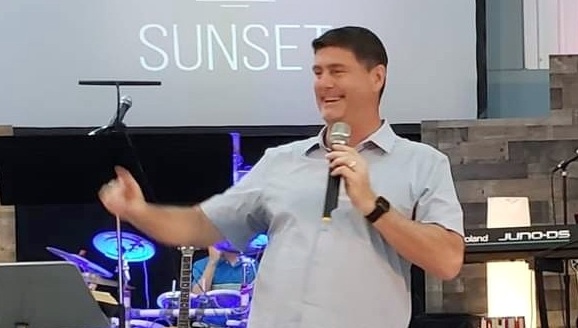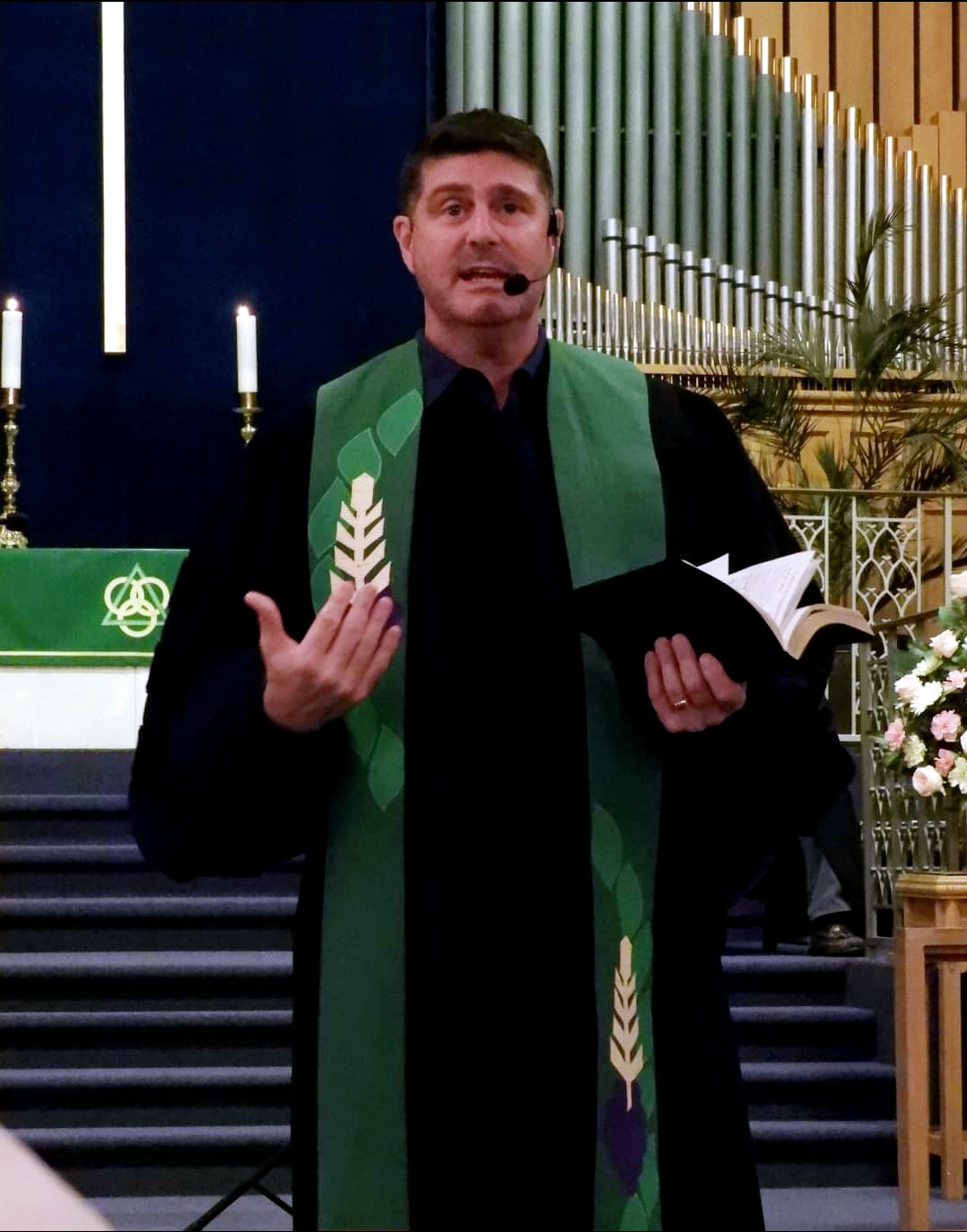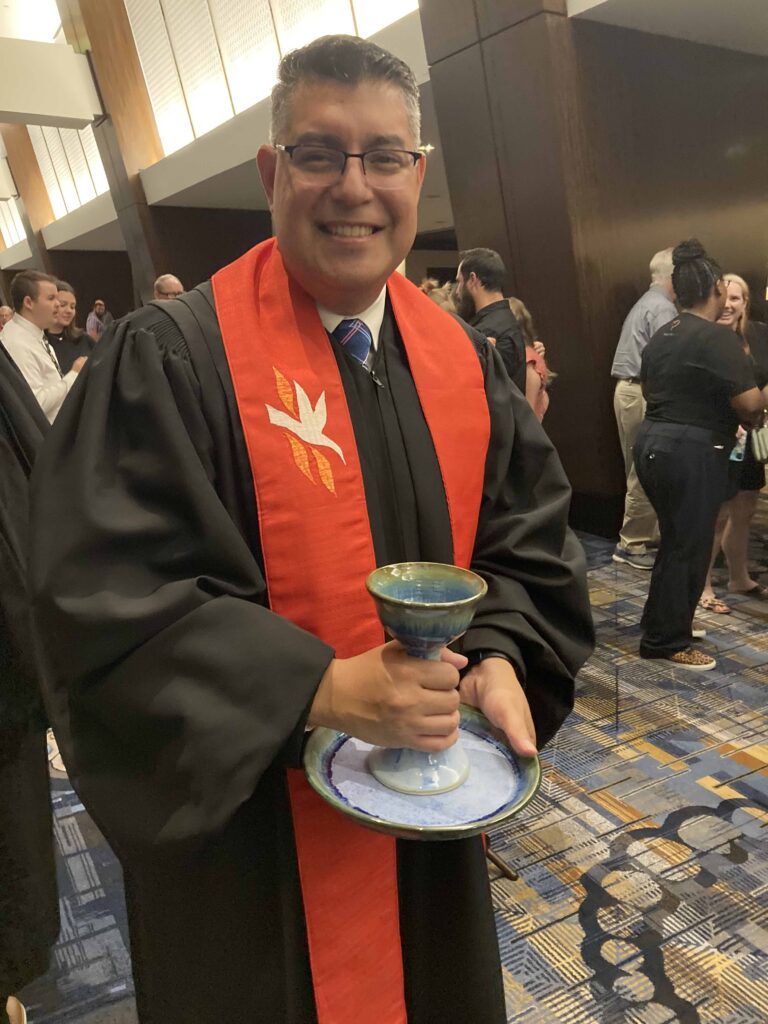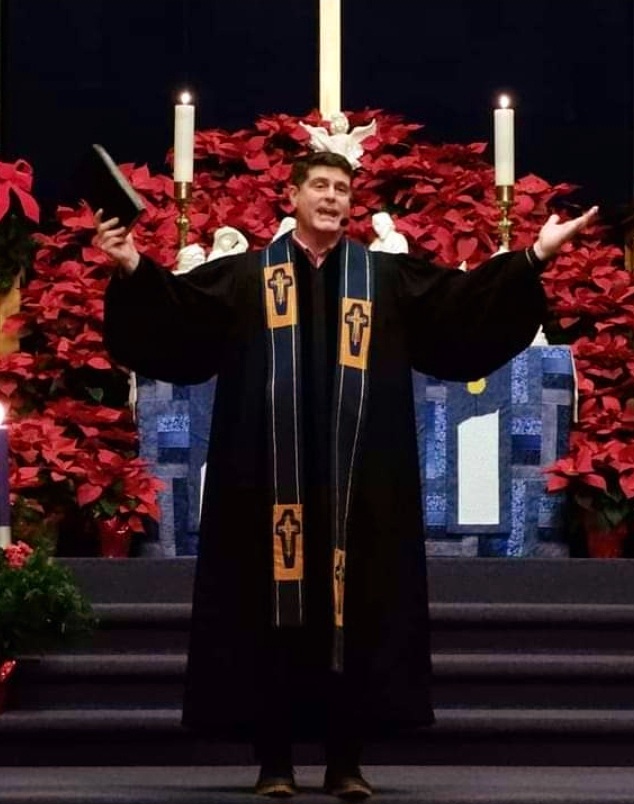
By Lindsay Peyton
The first days at a new church are the perfect time to learn as much about the congregation and its surrounding neighborhood as possible, according to Rev. Daniel Jones. “When you first drive up, you notice everything,” he said. “After a couple of months, you stop seeing things.”
Jones was appointed Senior Pastor at Sunset UMC in Pasadena last July. Before that, he served as president and CEO of the nonprofit Strategic Global Missions, which he started with his wife Kristen, Director of Ministries and Missions for FUMC Houston.

What he found is not unusual for many churches today – the area around the congregation had changed over the years and no longer was represented by the population inside church walls. “The congregation is majority Anglo and the average age is 70,” he said. “In the neighborhood around us, it’s 35 and Hispanic.”
While the congregation had added a Spanish service on Sundays before the pandemic, led by Pastor Victor Robles, many community members still did not know about the offering. “There hadn’t been a lot of visitors from the neighborhood,” Jones said.
Jones turned to the Ministry Specialist Initiative (MSI) for help. The program, which launched in 2022, matches clergy with specialized guides called Ministry Specialists. Rev. Bonnie Osteen, the Texas Annual Conference’s Director for the Intentional Interim Ministries Specialist, serves as coordinator of the Initiative.
Sunset UMC connected with two Ministry Specialists last fall. First, the congregation worked with vision consultant Steve Stutz, a life coach and spiritual director.
Rev. Cesar Martinez, Senior Pastor of Crossroads UMC in Houston, signed on as the church’s cultural sensitivity specialist. The first step was listening in depth to Jones and church leadership about their needs and hopes, he explained.

“The church was having difficulty connecting with the changed neighborhood,” he said. “How do we open up? How do we move forward to where the community comes to the church and sees that it is there for them?”
Martinez learned about the church’s history, as well as members’ attitudes and priorities. “My method is Socratic,” he said. “It’s asking questions and trying to get to the core. We had some great conversations, established what the congregation is and what they value.”
He explained that there is often a disconnect between what the church is hoping to communicate to the community and how that is being received in the neighborhood. That is where cultural awareness can make a difference.
“The next step is where do we go from here? What are practical ways to make more room for a different culture to exist?” Martinez explained. “Really you have to be aware of your culture first. It starts with self-reflection before you move forward.”
A period of discernment is required before a change can be made, he added. And Jones found that reflection to be key to growth in the congregation.
“What we needed was a little more self-awareness,” he said. “We think we need to look externally. The real answer was we needed some reflection. We needed to look internally.”
Jones explained that Sunset UMC had a strong desire to reach out to the neighborhood. “They wanted to,” he said. “The question was, why are the things we’re doing not working?”
He continued, “The strength of the congregation turned out to be an Achilles heel. The relationships are tight. These are people who have been living life together for a long time.
It can be hard to break in.”
From the outside, it may look like there is no room for a new member to step in and become part of the tight-knit group.
Now, after working with the Ministry Specialist, the congregation is ready to connect the dots – and open its doors wider to the community. “We’ve identified a plan, and we’re moving forward,” Jones said.
Jones and Sunset leaders discovered faith-based nonprofit Community Preschools, an organization that starts preschools in underserved neighborhoods. The children’s building on campus, which was underutilized, especially during school hours, would be a perfect spot, Jones explained.
“This will give us a jumpstart,” he said. “And we’ll have external help communicating in our neighborhood.”
The congregation is in the planning stages and has begun preparing the building. “We’re on track to be open this fall,” Jones said.
Sunset is also leaning into its culture of service. “What we want to do is convey the presence of Christ by serving the needs in our neighborhood,” Jones said. “We believe that’s really the formula for growth.”
The church is already service-oriented, the pastor explained. For instance, the church houses the largest food bank in Pasadena.

“This congregation has been active in mission,” Jones said. “It’s part of their DNA.”
The preschool will help expand their service to the community. “It’s just tapping into that,” Jones said. “And we’re looking at the values we hold, the existing assets the church already has. Our impulse to serve, that’s our strongest asset.”
He is grateful for the Ministry Specialist Initiative. “These resources have been vital to feeling hope about our future and what we can do,” he said. “We’re excited about the plan we have going forward.”
Jones added that the MSI speaks to the value of the United Methodist connectional system. “It’s so important to ask for help,” he said. “There are people out there who want you to be successful and want to serve as a resource. We need one another.”
